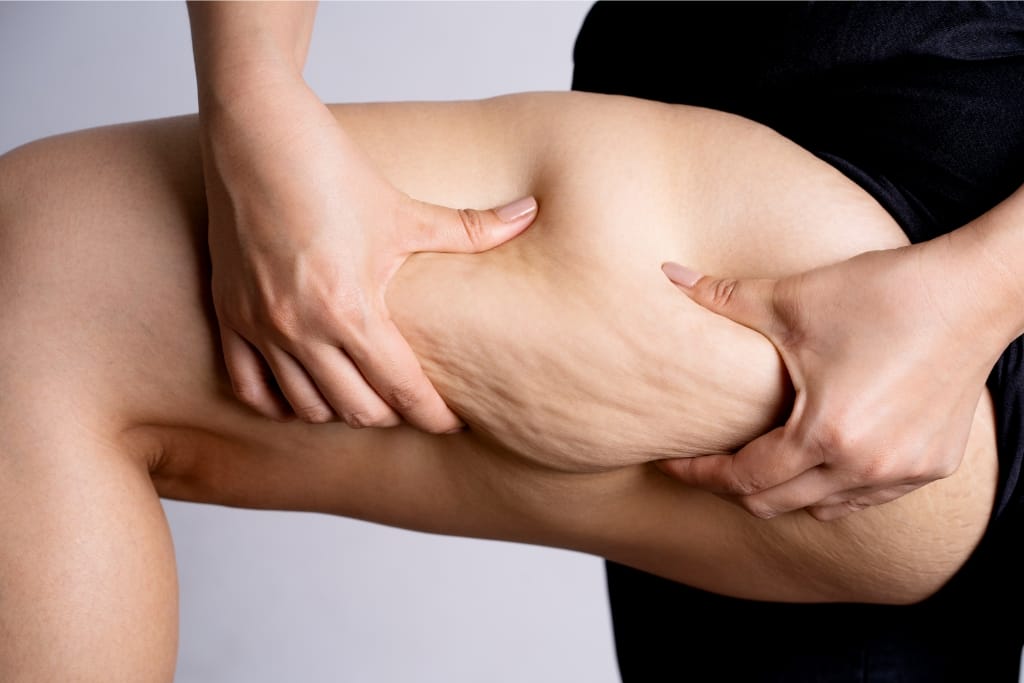Considering liposuction but feeling overwhelmed by questions and concerns?
You're not alone.
This popular cosmetic procedure raises many questions for prospective patients, from safety concerns to recovery expectations.
Liposuction remains one of the most frequently performed cosmetic surgeries worldwide, yet misconceptions and worries persist.
Understanding the facts can help you make an informed decision about whether this procedure aligns with your goals and expectations.
We will address the ten most common concerns people have about liposuction, providing clear, factual answers to help you navigate your decision-making process with confidence.
Understanding Liposuction: The Basics
Before addressing specific concerns, it's important to understand what liposuction actually involves.
Liposuction is a surgical procedure that removes excess fat deposits from specific areas of the body through small incisions and suction techniques.
The procedure targets areas where stubborn fat persists despite diet and exercise efforts.
Common treatment areas include the abdomen, thighs, hips, arms, neck, and back.
Modern liposuction techniques have evolved significantly, offering various approaches to suit different patient needs and desired outcomes.
1)) Is Liposuction Safe?
Safety represents the primary concern for most prospective patients.
Like any surgical procedure, liposuction carries inherent risks, but when performed by qualified, board-certified plastic surgeons in accredited facilities, complications are relatively rare.
The American Society of Plastic Surgeons reports that serious complications occur in less than 1% of liposuction procedures.
Common minor side effects include temporary swelling, bruising, and numbness, which typically resolve within weeks.
To maximize safety, choose a surgeon certified by the American Board of Plastic
Surgery and ensure the procedure takes place in an accredited surgical facility.
Your surgeon should conduct a thorough medical evaluation and discuss all potential risks during your consultation.
2)) How Much Does Liposuction Cost?
Cost considerations significantly influence many patients' decisions.
Liposuction costs vary widely based on several factors, including geographic location, surgeon expertise, facility fees, and the extent of treatment required.
Generally, liposuction costs range from $2,000 to $10,000 or more, depending on the areas treated.
Multiple treatment areas increase overall costs, as does the complexity of the procedure.
Additional expenses may include anesthesia fees, facility costs, and post-operative garments.
Most insurance plans don't cover liposuction since it's considered cosmetic surgery.
However, many practices offer financing options to help patients manage costs.
During your consultation, request a detailed breakdown of all associated fees to avoid unexpected expenses.
3)) Will The Results Look Natural?
Achieving natural-looking results depends largely on surgeon skill and technique selection.
Experienced surgeons understand body proportions and work to create smooth, natural contours that complement your existing physique.
Modern liposuction techniques, such as tumescent liposuction and ultrasound-assisted liposuction, allow for more precise fat removal and better skin retraction.
These advanced methods help minimize irregularities and create smoother results.
The key to natural-looking outcomes lies in conservative fat removal and artistic shaping.
Skilled surgeons remove fat strategically, maintaining natural curves and proportions while addressing specific problem areas.
4)) How Long Does Recovery Take?
Recovery timelines vary based on the extent of treatment and individual healing factors.
Most patients return to light activities within a few days and resume normal routines within one to two weeks.
Initial recovery involves managing swelling, bruising, and discomfort.
Your surgeon will provide detailed post-operative instructions, including wearing compression garments, avoiding strenuous activities, and attending follow-up appointments.
Full results typically become visible after three to six months as swelling subsides completely.
Some patients experience minor swelling for several months, which gradually resolves.
Following post-operative care instructions closely helps ensure optimal healing and results.
5)) Is Liposuction Painful?
Pain tolerance varies among individuals, but most patients report manageable discomfort during recovery.
The procedure itself is performed under anesthesia, so you won't feel pain during surgery.
Post-operative discomfort typically feels similar to intense muscle soreness.
Most patients describe the sensation as tight, achy, or tender rather than sharp pain.
Prescription pain medication helps manage discomfort during the first few days of recovery.
Pain levels generally decrease significantly after the first week.
Many patients find that staying mobile with light walking and following prescribed pain management protocols helps minimize discomfort and promotes faster healing.
6)) Will Fat Return After Liposuction?
Liposuction permanently removes fat cells from treated areas. Once these cells are gone, they cannot regenerate.
However, remaining fat cells can still expand if you gain weight after surgery.
Maintaining stable weight through healthy lifestyle choices helps preserve your liposuction results long-term.
Significant weight gain can affect your body shape and potentially diminish the improvements achieved through surgery.
The best candidates for liposuction are individuals already near their ideal weight who struggle with localized fat deposits.
Liposuction works best as a body contouring procedure rather than a weight loss solution.
7)) Are There Age Restrictions?
No specific age restrictions exist for liposuction, but surgeons evaluate each patient individually.
Most surgeons prefer patients be at least 18 years old and have realistic expectations about outcomes.
Older patients may be excellent candidates if they're in good health and have adequate skin elasticity.
However, skin quality becomes increasingly important with age, as older skin may not retract as well after fat removal.
Your surgeon will assess your overall health, skin condition, and aesthetic goals to determine if you're a suitable candidate, regardless of age.
Medical conditions and medications may influence candidacy more than age alone.
8)) What About Loose Skin After Treatment?
Skin elasticity plays a crucial role in liposuction outcomes. Younger patients with good skin tone typically experience excellent skin retraction after fat removal.
However, patients with poor skin elasticity may develop loose or sagging skin.
Your surgeon will evaluate your skin quality during consultation and discuss realistic expectations.
In cases where significant skin laxity is expected, combining liposuction with skin tightening procedures may be recommended.
Factors affecting skin elasticity include age, genetics, sun exposure, and weight fluctuations.
Maintaining good skin health through proper hydration, sun protection, and skincare can help optimize results.
9)) Can Liposuction Address Cellulite?
Liposuction primarily targets subcutaneous fat rather than the structural issues causing cellulite.
While some patients notice cellulite improvement after liposuction, this isn't the procedure's primary purpose.
Cellulite results from fibrous bands pulling down on the skin while fat pushes upward, creating a dimpled appearance.
Liposuction removes fat but doesn't address these underlying structural components.
Specific cellulite treatments, such as subcision or radiofrequency procedures, may be more effective for addressing cellulite concerns.
Discuss your specific goals with your surgeon to determine the most appropriate treatment approach.
10)) How Do I Choose The Right Surgeon?
Selecting a qualified surgeon is perhaps the most important decision in your liposuction journey.
Board certification by the American Board of Plastic Surgery ensures your surgeon has completed rigorous training in cosmetic surgery.
Research potential surgeons thoroughly, reviewing their credentials, experience, and before-and-after photos.
Schedule consultations with multiple surgeons to compare approaches and feel comfortable with your choice.
During consultations, evaluate the surgeon's communication style, facility cleanliness, and staff professionalism.
A qualified surgeon will provide detailed information about the procedure, discuss realistic expectations, and never pressure you into making immediate decisions.
Conclusion
Understanding these common concerns helps you approach liposuction with realistic expectations and informed decision-making.
Remember that liposuction is a significant medical procedure that requires careful consideration and proper preparation.
Take time to research thoroughly, consult with qualified surgeons, and ensure you're pursuing liposuction for the right reasons.
The best candidates have realistic expectations, maintain stable weight, and choose experienced, board-certified surgeons.
If you're considering liposuction, schedule consultations with qualified plastic surgeons in your area.
Use this information as a foundation for meaningful discussions about your goals, concerns, and expectations.
With proper planning and realistic expectations, liposuction can be a safe and effective way to achieve your desired body contours.
Download Our Free E-book!








